Ditapis dengan

Dimensions of heritage and memory:multiple Europes and the politics of crisis
edited by Christopher Whitehead, Susannah Eckersley, Gönül Bozoglu, and Mads Daugbjerg.
- Edisi
- -
- ISBN/ISSN
- 9780429958465
- Deskripsi Fisik
- 1 online resource
- Judul Seri
- -
- No. Panggil
- -
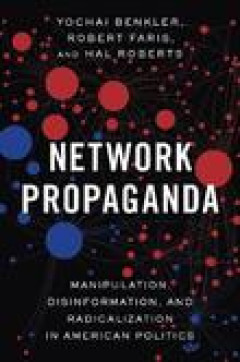
Network propaganda :manipulation, disinformation, and radicalization in Ameri…
"Is social media destroying democracy? Are Russian propaganda or ""Fake news"" entrepreneurs on Facebook undermining our sense of a shared reality? A conventional wisdom has emerged since the election of Donald Trump in 2016 that new technologies and their manipulation by foreign actors played a decisive role in his victory and are responsible for the sense of a ""post-truth"" moment in which d…
- Edisi
- -
- ISBN/ISSN
- 9780190923624
- Deskripsi Fisik
- IX, 462 p.
- Judul Seri
- -
- No. Panggil
- 324.9730932 BEN n

Poetics and politics
Far from teleological historiography, the pan-European perspective on Early Modern drama offered in this volume provides answers to why, how, where and when the given phenomena of theatre appear in history. Using theories of circulation and other concepts of exchange, transfer and movement, the authors analyze the development and differentiation of European secular and religious drama, within t…
- Edisi
- -
- ISBN/ISSN
- 9783110536690
- Deskripsi Fisik
- 280 p.; 22 cm.
- Judul Seri
- -
- No. Panggil
- 822 POE p
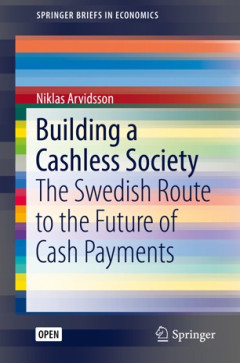
Building a cashless society :the Swedish route to the future of cash payments
This open access book tells the story of how Sweden is becoming a virtually cashless society. Its goal is to improve readers’ understanding of what is driving this transition, and of the factors that are fostering and hampering it. In doing so, the book covers the role of central banks, political factors, needs for innovation, and the stakeholders involved in developing a cashless ecosystem. …
- Edisi
- -
- ISBN/ISSN
- 9783030106898
- Deskripsi Fisik
- x, 96p. : ill.
- Judul Seri
- -
- No. Panggil
- 332.409485 ARV b

The Politics of written language in the Arab world
The Politics of Written Language in the Arab World asks how the central sociolinguistic notions of language ideology and diglossia are affected by the rapidly increasing amount of writing in the Arabic vernacular. Readership: Readers interested in the Arabic language situation, language ideology, diglossia, and emerging writing practices
- Edisi
- -
- ISBN/ISSN
- 9789004346178
- Deskripsi Fisik
- 330 p.; 22 cm.
- Judul Seri
- -
- No. Panggil
- 306.449 POL p
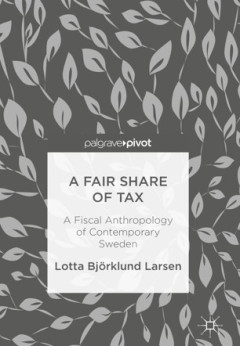
A fair share of tax :a fiscal anthropology of contemporary Sweden
This book takes a taxpayer's perspective to the relations taxation creates between people and their state. Larsen proposes that in order to understand tax compliance and cheating, we have to look beyond law, psychological experiments and surveys to include tax collectors and taxpayers' practices. The text explores the view of taxes seen as citizen’s explicit economic relation to the state and…
- Edisi
- -
- ISBN/ISSN
- 9783319697727
- Deskripsi Fisik
- xiii, 136p. : ill.
- Judul Seri
- -
- No. Panggil
- 306.3 LAR f
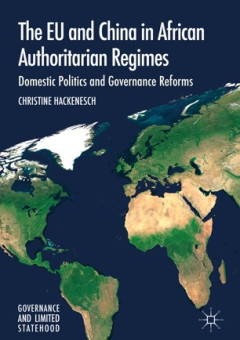
The EU and China in African authoritarian regimes :domestic politics and gove…
This open access book analyses the domestic politics of African dominant party regimes, most notably African governments’ survival strategies, to explain their variance of opinions and responses towards the reforming policies of the EU. The author discredits the widespread assumption that the growing presence of China in Africa has made the EU’s task of supporting governance reforms difficu…
- Edisi
- -
- ISBN/ISSN
- 9783319635910
- Deskripsi Fisik
- xvi, 261p. : ill.
- Judul Seri
- -
- No. Panggil
- 341.2422096 HAC e
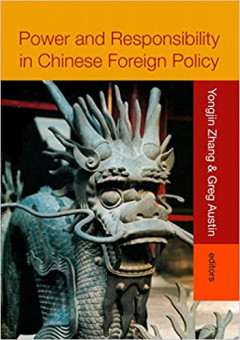
Power and responsibility in chinese foreign policy
The People’s Republic of China is now over fifty years old. Long considered an outsider, or a club of one, in international relations, China has recently become more active in international institutions. Is China becoming a responsible power in global and regional international relations? How accurate is the traditional perception of China? What factors may be motivating the changes in China�…
- Edisi
- -
- ISBN/ISSN
- 9781925021417
- Deskripsi Fisik
- -
- Judul Seri
- -
- No. Panggil
- 327.51 AUS p
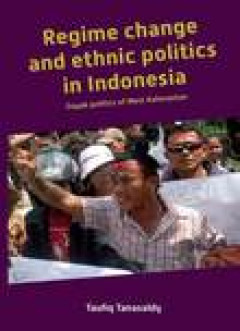
Regime change and ethnic politics in Indonesia; Dayak politics of West Kalima…
When the Indonesian New Order regime fell in 1998, regional politics with strong ethnic content emerged across the country. In West Kalimantan the predominant feature was particularly that of the Dayaks. This surge, however, was not unprecedented. After centuries of occupying a subordinate place in the political and social hierarchy under the nominal rule of the Malay sultanates, Dayaks became …
- Edisi
- -
- ISBN/ISSN
- -
- Deskripsi Fisik
- xiv, 461 p.; 22 cm.
- Judul Seri
- -
- No. Panggil
- 959.8 TAN r
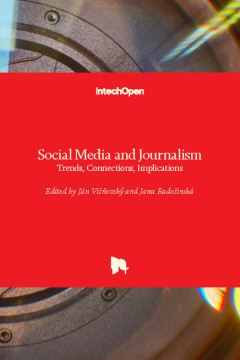
Social media and journalism:trends, connections, implications
Nowadays, social media are amongst the most frequently used entertainment and information sources, offering the most recent news. National, international and global issues of social media journalism involve a wide spectrum of complex questions related to the production, distribution and reception of media contents, as well as a plethora of social, cultural, economic, legal and ethical aspects t…
- Edisi
- -
- ISBN/ISSN
- 9781789842593
- Deskripsi Fisik
- 144 p.; 22 cm.
- Judul Seri
- -
- No. Panggil
- 070 SOC s

Heritage politics in Adelaide
In the 1970s the Australian Commonwealth Government and three States, Victoria (1974), New South Wales (1977) and South Australia (1978), passed legislation to protect the built heritage within their jurisdictions. The legislation was primarily a response to two factors: a large number of public protests against the demolition of historic buildings in all Australian states by the 1970s and the …
- Edisi
- -
- ISBN/ISSN
- 9780987073037
- Deskripsi Fisik
- -
- Judul Seri
- -
- No. Panggil
- 307.12 MOS h
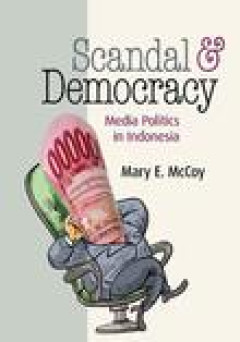
Scandal and democracy:media politics in Indonesia
After a nation has transitioned from authoritarianism to democracy, how are democratic norms most effectively fostered and maintained? This book uses as its case study Indonesia after the fall of the dictator Suharto to reveal that a contentious, even scandal-obsessed press can actually prove extremely useful for an emergent democracy. A society that can tolerate and protect journalists willing…
- Edisi
- -
- ISBN/ISSN
- 9781501731037
- Deskripsi Fisik
- xiii, 203 p.; 22 cm.
- Judul Seri
- -
- No. Panggil
- 302.2309598 MCC s
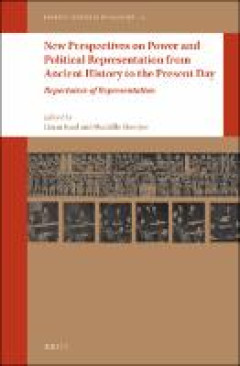
New perspectives on power and political representation from ancient history t…
This volume examines modes of political communication between rulers and ruled from antiquity to the present by applying the concept of representation. It explores the dynamic relationship between elites and the people which is shaped by self-representation and representative claims. Readership: All scholars and students interested in the phenomenon of political representation, from antiquity t…
- Edisi
- -
- ISBN/ISSN
- 9789004291966
- Deskripsi Fisik
- XI, 206 p.
- Judul Seri
- -
- No. Panggil
- 321.809 NEW n
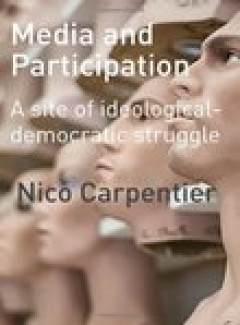
Media and participation:a site of ideological-democratic struggle
Participation has become fashionable again, but at the same time it has always played a crucial role in our contemporary societies, and it has been omnipresent in a surprisingly large number of societal fields. In the case of the media sphere, the present-day media conjuncture is now considered to be the most participatory ever, but media participation has had a long and intense history. To dea…
- Edisi
- -
- ISBN/ISSN
- 9781841504070
- Deskripsi Fisik
- 408 p.; 22 cm.
- Judul Seri
- -
- No. Panggil
- 302.30285 CAR m

Civil Society and the State in Democratic East Asia:between entanglement and …
This volume focuses on the new and diversifying interactions between civil society and the state in contemporary East Asia by including cases of entanglement and contention in the three fully consolidated democracies in the area: Japan, South Korea and Taiwan. The book argues that all three countries have reached a new era of post high-growth and mature democracy, leading to new social anxietie…
- Edisi
- -
- ISBN/ISSN
- 9789048551613
- Deskripsi Fisik
- -
- Judul Seri
- -
- No. Panggil
- 300 CHI c

Political discourses at the extremes:expressions of populism in romance speak…
The authors of this edited volume focus on the emergence of populist discourses, coming from movements or parties from Romance-speaking countries in Europe and in Latin America. By combining linguistics, social and political sciences in a discourse analytical approach, the sixteen papers enlighten the mechanisms behind populist discourses yielding from different socio-cultural and political con…
- Edisi
- -
- ISBN/ISSN
- 9789176350928
- Deskripsi Fisik
- -
- Judul Seri
- -
- No. Panggil
- 320.5 POL p
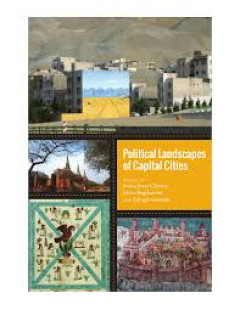
Political landscapes of capital cities
Political Landscapes of Capital Cities] is a welcome contribution to the study of the spatialization of society and suggests paths that anthropologists can take to analyze political space in urban and non-urban settings alike." —Anthropology Review Database "[O]utstanding contributions of an interdisciplinary group of authors trained in different methodologies. . . . offer[s] both scholarly a…
- Edisi
- -
- ISBN/ISSN
- 9781607324690
- Deskripsi Fisik
- -
- Judul Seri
- -
- No. Panggil
- 320 POL p
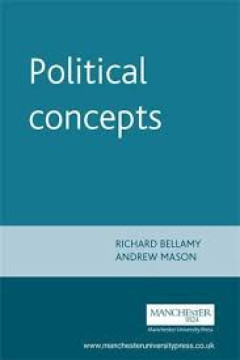
Political concepts
Written by a powerful international team of theorists, this book offers a sophisticated analysis of the central political concepts in the light of recent debates in political theory. All political argument employs political concepts. They provide the building blocks needed to construct a case for or against a given political position. To address such issues as whether or not development aid is …
- Edisi
- -
- ISBN/ISSN
- 0719059097
- Deskripsi Fisik
- viii, 245 p. ; 24 cm.
- Judul Seri
- -
- No. Panggil
- 320 BEL p
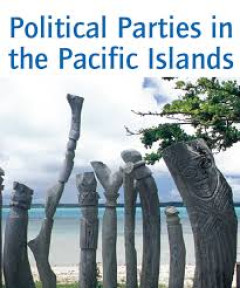
Political parties in the Pacific Islands
While political parties remain an indispensable institutional framework for representation and governance in a democracy, the democracies of many Pacific Islands nations are undermined by the weakness and inefficacy of their local political parties. Addressing the implications of the lack of established party systems across the Pacific, this collection seeks to illuminate the underlying assumpt…
- Edisi
- -
- ISBN/ISSN
- 9781921313769
- Deskripsi Fisik
- xiv, 229 p. : maps ; 25 cm.
- Judul Seri
- -
- No. Panggil
- 324.291823 RIC p
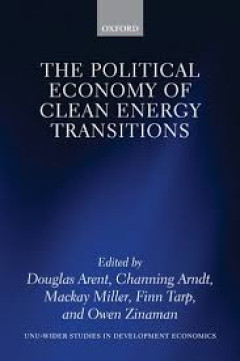
Political economy of clean energy transitions
The 21st Conference of the Parties (CoP21) to the United Nations Framework Convention on Climate Change (UNFCCC) shifted the nature of the political economy challenge associated with achieving a global emissions trajectory that is consistent with a climate. The shifts generated by CoP21 place country decision-making and country policies at centre stage. Under moderately optimistic assumptions c…
- Edisi
- -
- ISBN/ISSN
- 9780198802242
- Deskripsi Fisik
- xxxvi, 594 pages : illustrations ; 24 cm.
- Judul Seri
- -
- No. Panggil
- 324.7 ARE p
 Karya Umum
Karya Umum  Filsafat
Filsafat  Agama
Agama  Ilmu-ilmu Sosial
Ilmu-ilmu Sosial  Bahasa
Bahasa  Ilmu-ilmu Murni
Ilmu-ilmu Murni  Ilmu-ilmu Terapan
Ilmu-ilmu Terapan  Kesenian, Hiburan, dan Olahraga
Kesenian, Hiburan, dan Olahraga  Kesusastraan
Kesusastraan  Geografi dan Sejarah
Geografi dan Sejarah